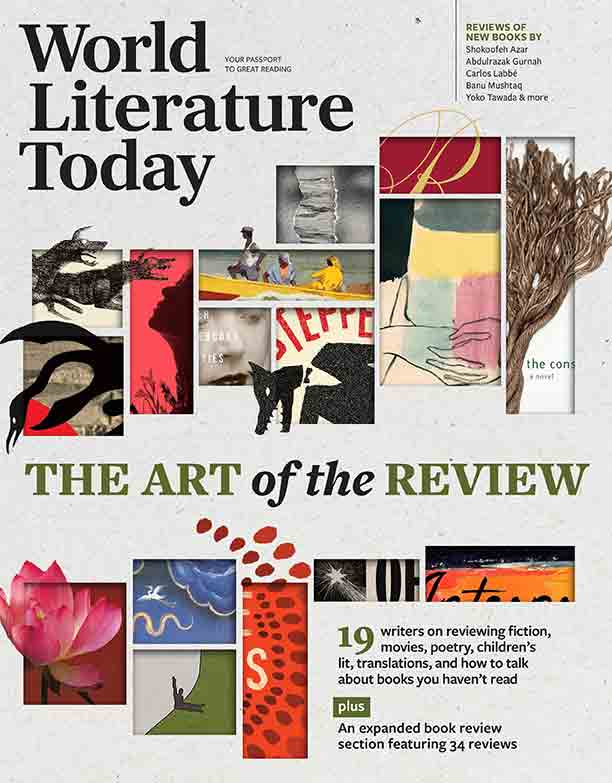A Taxonomy of Book Reviewers: For a Deeper Understanding of “Why Me?”

Eight reviewers in search of an author . . . or themselves.
The Stockist
What can be more predictable than the sun rising at dawn? Or birdsong at dusk? Or the sagging but still-lovely rump of an old lover? The Stockist offers the solace of familiarity, the insipid comfort of well-worn adjectives and adverbs. To The Stockist, your book is either “luminous” or “atmospheric” or “imaginative” or “nice in parts.” The Stockist is in remarkable control of his or her or their ecstasies and despair; the review is devoid of extreme emotion. The review will offer a meticulous plot summary, though, for The Stockist is nothing if not meticulous. No risk-taking, no phraseology-making, no glorious interpretations of the book’s style or symbolism. No veiled threats to annihilate the author either, no allusions to the author’s delinquency, illiteracy, overall unripeness. The Stockist does not delight, neither does he or she or they offend.
The Thwarted Poet
This reviewer has angst; this reviewer has a lyrical angst, a relentless angst, an exquisitely corrosive angst, an angst that heaves with the historical and political misdeeds of the era this reviewer inhabits. A deep gorge of an angst; a festering wound of an angst. This reviewer seeks, and finds, angst on the page, even a page that describes the contours of a peach or the colors of a spring day. Fruit rots, colors spoil—it is inevitable. The Thwarted Poet, bursting with adjectives fresh and angsty, is a maker of disgruntled sentences. A connoisseur of unrequited feelings, The Thwarted Poet’s book review often ripples with undercurrents. Sentences are quoted, dissected; the author’s thematic intent is rendered problematic: “Why should X have eaten a peach in bed? X has urges, which the fleshy peach represents.” The Thwarted Poet’s piece is usually a rough wind that rustles the leaves, not a gale that howls and uproots villages. It can also be a verbose wind, for it carries the hitherto unspoken angst of generations.
The Activist
The world is a foul place, governed by those with dubious credentials. Its air is putrid, its waters ooze plastic, its people kill each other for land or oil or for the many silent gods that compete for space in rancid heavens. Your book must champion a cause or two for it to hold The Activist’s interest. It must, in some way, align with The Activist’s sociopolitical allegiances. For if a book can’t save the world, then at least it should tell of its wretchedness. And tell it clearly, preferably sans metaphors or similes. Serious nonfiction with notes and annotations delights The Activist, making him or her or them feel a sliver of hope, even though this book reviewer loathes words like “sliver.” Fiction, if it must exist, should contain no slivers or sunsets or peaches or roses or paragraph after paragraph depicting the fragile beauty of each. Beauty, too, is a nonsensical notion in a world where we are all turning into furry creatures and hurtling toward an ugly, violent end.
The Scholar
A sincere specimen, albeit somewhat narcotized. The Scholar proliferates in college corridors, libraries, and cafeterias that serve milky tea in conical glasses. This reviewer is usually a PhD candidate with a genuine love for literature. But genuine love can be strangulated by too much postmodernist theorizing. The Scholar’s piece is often a minidissertation spewing a recently acquired vocabulary of critical thought and analysis. This reviewer may digress into a brief history of ideas or philosophy or semiotics and may never return to the actual book crying out for a lucid review. Digressive discourse is pleasing to The Scholar. So is a cannabis-induced hallucinatory gaze at the book’s structure, voice, and thematic arc . . . or is that narrative arc . . . now wait a minute . . . are thematic arc and narrative arc interchangeable? This reviewer often flounders in a marsh of clever arguments. One can only hope, for the sake of your book, that he or she or they can tell the difference between Kafkaesque and Orwellian and Dickensian.
The Scholar proliferates in college corridors, libraries, and cafeterias that serve milky tea in conical glasses.
The Anarchist
To subvert is to breathe. To demolish is to achieve a perverse mission. The Anarchist can’t help but turn text into poison. This reviewer seethes with rage; this reviewer’s heart palpitates with all that is unforgivable—the kindergarten bully’s little shove in the playground, the successful and good-looking sibling for being successful and good-looking, the persistent mockery flashing in the overbright eyes of various co-workers. The only reason why The Anarchist hasn’t had a coronary yet is because his or her or their rage gets published as a book review (the hasty, clumsy, and twenty Surya Namaskars performed at dawn may also have something to do with this reviewer’s longevity). The Anarchist is also an alarmist, an imaginative alarmist who weaves conspiracy theories into the book review. The piece may be spiked with declarations such as “This book has been endorsed by the author’s friends and lovers, which explains the glorious endorsements for such an inglorious book . . .” The Anarchist is irredeemably anarchic.
The Philanthropist
No book is bad; bad books can be good if our thoughts are not unclean. The Philanthropist is a spiritualist of sorts, a disseminator of kindness through benign book reviews. This reviewer, a happy counterpoint to The Anarchist, loves it all—peachy peaches and rosy roses and sunny sunrise. This reviewer does not fret over tawdry sentences or inconsistencies in plot, for isn’t each flawed book a reflection of a flawed universe? “We are all wonderfully imperfect, so why shouldn’t our books be?” The Philanthropist is prone to posing rhetorical questions. He or she or they might also skip a chapter or two, or read the first chapter or the prologue and then glide blissfully to the concluding chapter, so that the benediction of a joyous review might hasten to the author. The review will be a detailed one, though, and carry no hint of these omissions. Is The Philanthropist also a trickster? one might be tempted to ask, although rhetorically.
The Former Investment Banker
What does one do if one is wealthy and unemployed, if one has circumnavigated the globe, and now has time to spare? This reviewer moonlights for free. This reviewer craves fame, a slippery consort who can’t be seduced in a suit and tie. Bylines thrill The Former Investment Banker; bylines glimmer with the possibility of this reviewer’s name appearing, someday soon, on the cover and spine of a book. The Former Investment Banker, still stoking the embers of ambition, seeks literary recognition, even adulation. Corporate life has taught this reviewer discipline, and so he or she or they hammer away on the keyboard, producing review after review through changing seasons, collapsible governments, even war (this reviewer’s mansion has a bunker or two). But, like The Scholar’s review, The Former Investment Banker’s piece is a digressive one. Unlike The Scholar, though, whose digressions are theoretical, The Former Investment Banker digresses to narrate a childhood memory or a moment that has outlived the century. This reviewer attempts to imitate the style of Marcel Proust or James Joyce or other literary superstars he or she or they are familiar with. The review might read like a chapter from this reviewer’s unfinished memoir.
The Hybrid
An exotic, hyphenated species. The Hybrid could be The Activist–Anarchist or The Stockist–Philanthropist, or The Thwarted Poet–Scholar–Activist or The Former Investment Banker–Philanthropist. Permutations abound, and the book review that materializes from The Hybrid will contain elements of each archetype. The piece may startle and unsettle and digress or demolish the book and then apologize for the demolition. In an uncertain world, who can tell what will be written about the book, your book, the one you spent the best or worst years of your life writing? Regardless, the book exists, and that is enough, for now.
New Delhi



